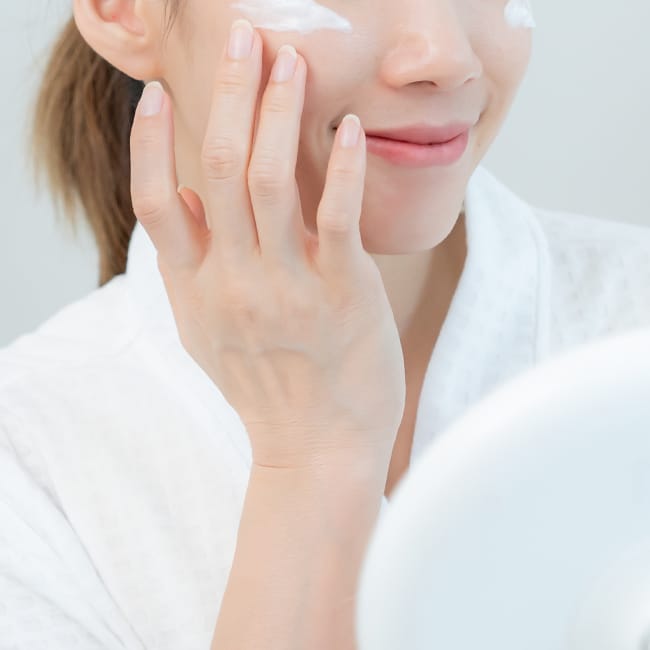Keeping your hair looking healthy during the cold winter months can be difficult as it is, but experiencing dandruff is a whole other battle.
We spoke to hair experts and stylists about one common chemical ingredient in many hair products that you should look out for— parabens— as they can worsen dandruff. Before getting into what your products contain, however, you should first take note of the main reasons for the formation of dandruff.
First Off, What Causes Dandruff?
Those pesky flakes can be attributed to several things— over-shampooing, irritated and oily skin, skin conditions like psoriasis and eczema or having a sensitivity to certain hair products. We spoke to Amanda Moore, Gem House hairstylist and hair expert about the causes of dandruff and how it is different from just having a dry scalp.
“There is a common misconception about dandruff,” says Moore. “Dandruff, or Seborrheic Dermatitis, is a skin condition that should be treated by a dermatologist. Many people think that they have dandruff but really just have a dry scalp.” Moore also explains that dry scalp is “dehydrated skin” whereas dandruff is caused from “oil buildup from the sebaceous glands.”
“On one hand, we want to cleanse the scalp from oils, but we do not want to over-cleanse and dry the skin out,” adds Moore. “Sulfates and over-shampooing are a huge cause of dry scalp.”
You may have also heard about the dangers of sulfates— the harsh detergents that create lather in shampoos and that all too often dry out our scalps. That’s the last thing you want in an already dryness-inducing season, so buying sulfate-free products is one necessary move you should make.
Sulfates, however, aren’t the only ingredient that could further exacerbate dandruff and dry the scalp of its essential oils.


Look Out for Parabens in Hair Products
We reached out to Dr. Craig Ziering, hair-transplant surgeon and hair restoration specialist about a common ingredient in many hair products that is associated with dandruff—parabens.
Parabens are synthetic chemicals that are commonly found as preservatives in shampoos, conditioners and other hair and cosmetic products.
"Parabens are very harsh, man-made chemicals known to be scalp irritators which can cause dry scalp and rashes, therefore making dandruff worse," says Dr. Ziering. He explains that rashes caused from parabens can lead to "excessive sensitivity and itching," making the scalp produce dandruff. "Parabens can also lead to hair loss as they can disrupt hormones," says Ziering.
Dandruff, Ziering elaborates, usually stems from oil and/or dry skin on the scalp that causes a buildup of skin cells. These will eventually flake off and fall through the hair shaft and strands out of the hair.
“Causation is usually irritation, extreme dry or oily scalp or a sensitivity creating a contact dermatitis in some form presenting as dry flaking,” Ziering says. “Ingredients, such as parabens, found in hair products, can also make dandruff worse.”
Overall, if you're experiencing dandruff, looking out for parabens and sulfates in your hair products is only one step in solving the problem. Dandruff, as both experts advise, should be treated by your doctor and dermatologist.
Taking care of your hair is vital this winter, and starting the year off with great hair is a goal for many people. Dandruff can be stopped and prevented by nourishing your hair the right way— and your doctor knows what's best for you and your locks.


























